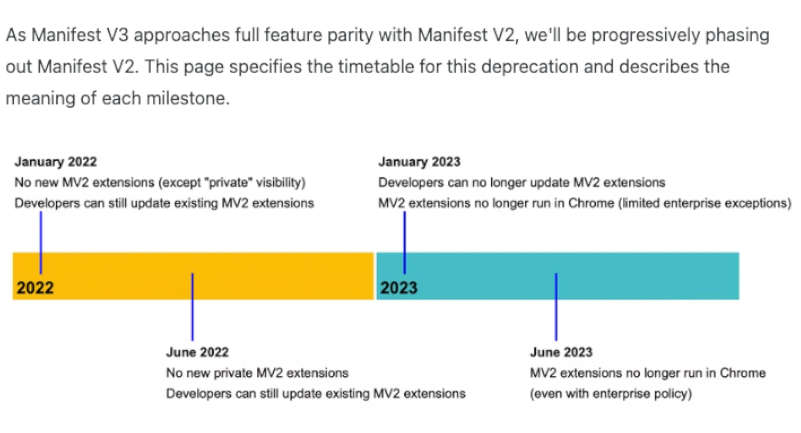Ad blockers, web browser extensions that block ads, are very popular, but the internet is largely based on advertising, and Google seems to want to eliminate such extensions in Google Chrome or at least the way they currently work.
From January 2023, Google Chrome browser extensions designed to block ads will no longer work.
This is indicated by a document intended for developers. During this period, an update will be released that will add API support for extensions to Manifest Version 3 in the browser while all ad-blocking applications run on version 2.
At the same time, it makes no sense to install extensions in advance — they will simply cease to function after the update. So far, there is no solution, but the developers report that they are already working to solve the problem and are preparing new versions of ad blockers.
The jump from Manifest V2 to Manifest V3 is not a change aimed solely at killing ad blockers. It actually brings some interesting new features to the manifest file. The key is found in the fact that Google will prevent the extensions from accessing webRequest, an API that is key in the operation of the extensions.
And the problem is that the offered alternative, declarativeNetRequest, prevents the extensions from carrying out the filtering work, which now depends exclusively on the browser itself.
Google Chrome’s decision to ban ad blockers like Adblock will surely cause thousands of users to migrate to other browsers that do allow them, including Mozilla Firefox, Microsoft Edge, Brave browser and others.

